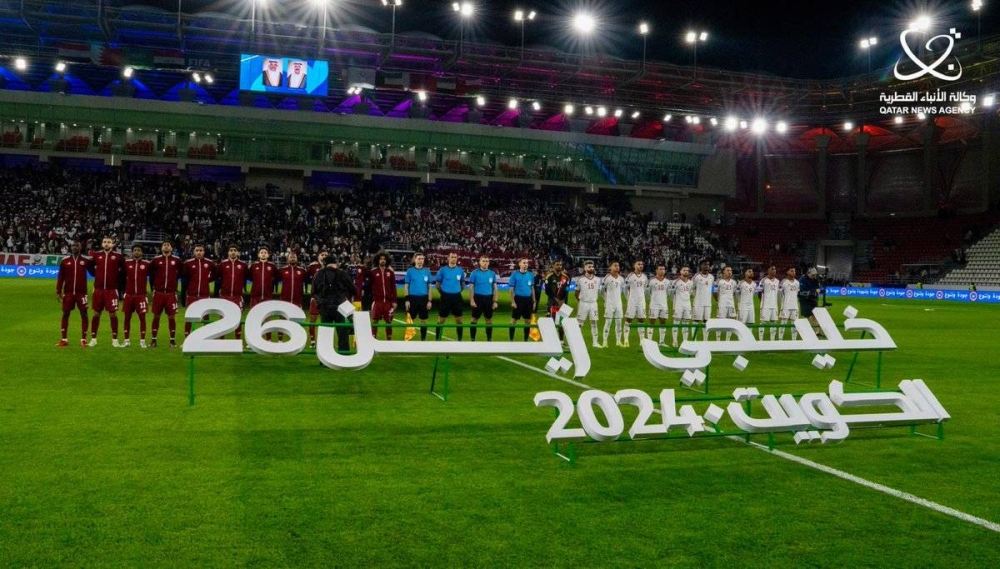
The Qatari national football team delivered a solid performance in its first appearance at the 26th Gulf Cup currently taking place in Kuwait, despite drawing 1-1 with UAE national team in the first round of Group A.
The draw, which took place yesterday (Saturday) at Jaber Al-Mubarak Stadium, did not affect the competition in group standings for qualification to semifinals. The opening match of the same group, held at Jaber Al-Ahmad International Stadium between hosts Kuwait and Oman, also ended in a 1-1 draw, leaving all four teams tied on points and goal difference.
This result is seen as satisfactory for Qatar, especially considering challenges leading up to the match. These included changes to coaching staff, with new Spanish coach Luis Garcia taking over from his compatriot Marquez Lopez, whose contract was terminated amicably. Garcia's squad choices also saw several changes.
Additionally, Qatar faced pressure ahead of the tournament after unsatisfactory results in the first six rounds of 2026 World Cup qualifiers, securing only two wins, one draw, and three losses. This left them in fourth place in their group, with limited chances to secure one of the top two spots for direct qualification to World Cup.
Despite the draw, Qatar achieved significant technical and tactical gains. Coach Garcia's decision to rely on young players, who may lack experience but showed excellent performance, was a highlight. The team demonstrated good coordination and strong individual performances, particularly from 18-year-old central defender Al Hashimi Al Hussein, who impressed with his tactical maturity, awareness, and ability to handle difficult situations.
The same can be said for fellow defender Bahaa Al Laythi, who, despite not playing as a central defender regularly, stood out. Tarek Salman also provided balance to the defense, drawing on his experience from winning two AFC Asian Cups (2019 and 2023) with Qatar.
Garcia's tactical flexibility was another key achievement, with the team starting with high pressing and ball possession to create opportunities both centrally and on the flanks. This approach led to a first-half lead through a penalty from Akram Afif, assisted by Hamam Al Amin. In the second half, the coach adjusted the strategy to focus on solidifying the defense and relying on quick counter-attacks, which led to several chances, though none were converted, especially after UAE equalized in first-half injury time.
The participation of Afif, 2023 AFC Player of the Year, was crucial despite rumors suggesting he would miss the match. His skills and individual brilliance gave his teammates confidence, as he remained a constant threat in attack, contributing to both scoring and creating opportunities.
Defensively, the team showed improvement, addressing previous concerns about defensive lapses and errors that had plagued them in the World Cup qualifiers. Yesterdays match demonstrated that Qatar had regained some of the defensive solidity that had been a hallmark of their success in recent years, conceding just one goal in seven matches during their 2019 Asian Cup victory and only five in the same number of matches during their 2023 title defense.
The players showed great determination and fighting spirit, pushing for a win until the final whistle. A key moment was the missed opportunity by young player Ibrahim Al Hassan in stoppage time.
In terms of match statistics, Qatar completed 280 passes, 207 of which were successful. They took three shots on target, with goalkeeper Meshaal Bresham saving three shots. The team won 34 percent of their duels and completed 70 percent of their dribbles.
The presence of Qatari fans at Jaber Al-Mubarak Stadium was also a standout, as they rallied behind their team, providing crucial support throughout the match and reinforcing belief that national team can continue achieving success as they have in recent years
